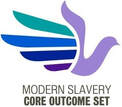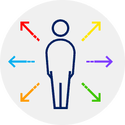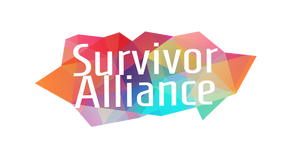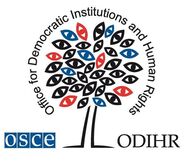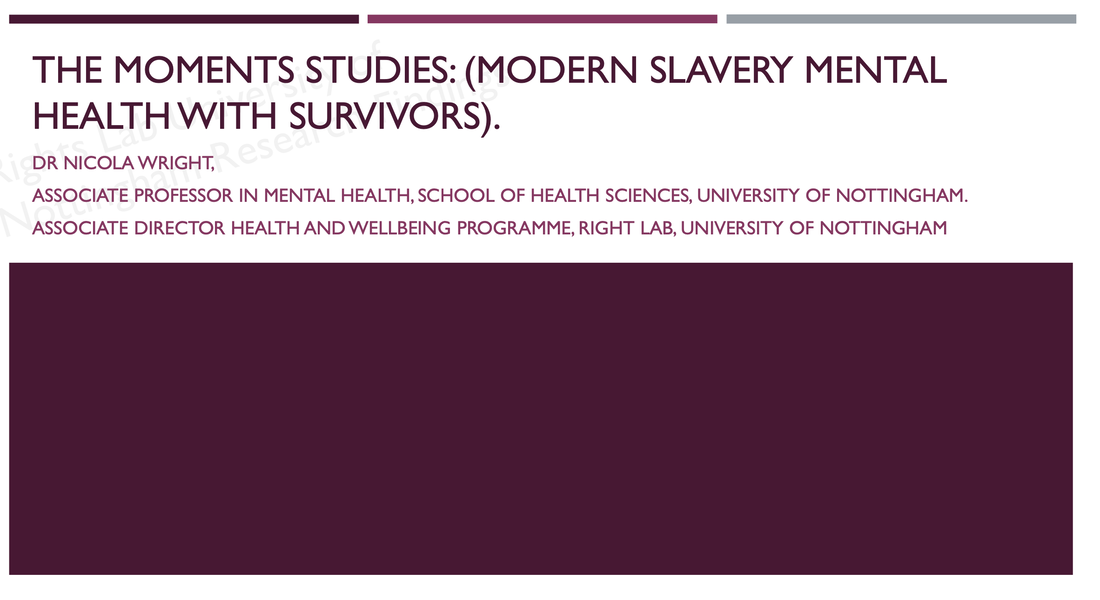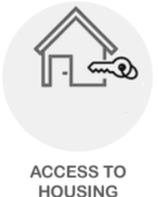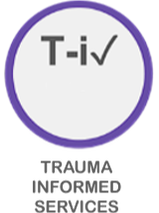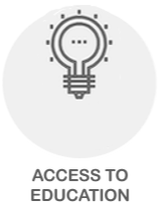"A community of practice is ‘a group of people who share a common concern, a set of problems, or an interest in a topic and who come together to fulfil both individual and group goals."
Keith Lewis
"A community of practice is ‘a group of people who share a common concern, a set of problems, or an interest in a topic and who come together to fulfil both individual and group goals."
Keith Lewis
|
|
x
Before I was trafficked, I had my individual purpose. It was like a fire that burned, but the rain came and put it out. Not all survivors are the same but every survivor has a purpose in their life, and they need to find it again. My purpose was always there, it was just lost. You want to continue stoking the flames now: you need to light up more logs in your shed, so that you can light up that fire in you again. |
x
Befriending other survivors is a good thing: If I befriend survivors, it may not be the same experience they have had as me, but I understand their pain, their hurt, everything they are going through. I became a survivor leader because I know that other survivors need support after all they have been through. If you are a non-survivor and you are speaking to a survivor, you may understand where they are coming from, but you don’t know what they are going through….being a part of survivor community, getting to know other survivors, you can help each other, you can motivate each other, because all you need is patience and understanding. We all cope differently; we don’t need to be told what to do, or how to do it – we want to learn how to cope and we need support from each other. |
Episode 1: Finding Purpose In Life and Self-Actualisation
|
Peter, a member of the MSCOS Research Advisory Board shares his thoughts on this outcome for our podcast focussing on Finding Purpose in Life and Self-Actualisation.
|
MSCOS study descriptor: This outcome is about a feeling of optimism and fulfilment. The idea of being able to have hope to dream and desire to live is crucial, as is being able to tolerate good and bad days without fully losing this sense of hope. A key outcome feature is self- actualisation understood as the ability to follow passions in life and living life to the fullest. This could include, for example, using talents, setting goals for self- advancement, and articulating personal goals and dreams.
Survivor-led Initiatives
|
Survivor Alliance VISION: A world where survivors of slavery and human trafficking are thriving members of society. MISSION: We will achieve our vision by uniting and empowering survivors of slavery and human trafficking around the world to become leaders of the anti-slavery movement. UNITING SURVIVORS: We believe that building sustainable survivor communities enables survivors to thrive. Without a place to share the lived-experiences of surviving a particular type of violence and trauma, we often feel alienated and isolated from mainstream society. Coming together as a community allows us to “speak the same language” and support one another in life after slavery. Survivor communities are not meant to be the only community in a person’s life. We encourage our members to build communities of faith, profession, recreation, nationality, and any other community that helps us feel a sense of belonging. EMPOWERING SURVIVORS: We believe that empowered survivors will lead the anti-slavery movement and create solutions for our fellow survivors to thrive. By providing learning, leadership, and engagement opportunities, survivors can find a way to transform our trauma into treasured knowledge and expertise. Serving as leaders in our communities allows us to leave a legacy that is greater than the traumas we endured. Empowerment, like freedom, is an individual and collective journey. We are committed to walking this journey with our members, in a process that will be led by, for, and of survivors. |
The OSCE/ODIHR International Survivors of Trafficking Advisory Council (ISTAC)
The International Survivors of Trafficking Advisory Council (ISTAC) is comprised of 21 international survivor leaders who aim to ensure the voices of survivors are reflected in all anti-trafficking policy development. The purpose of ISTAC is to assist ODIHR when the Office is approached by OSCE executive structures and field operations, OSCE participating States, OSCE Partners for Co-operation and other relevant stakeholders about trafficking related issues. ODIHR seeks and shares the expertise of ISTAC's members when developing and promoting survivor-centred and human rights-based national and transnational anti-trafficking frameworks, which incorporate survivors as a key stakeholder. With ISTAC's support, ODIHR promotes the standardization of survivor-related terminology within these frameworks and fosters the development of survivor networks and survivor leadership. The inclusion of survivor leaders' lived experiences, witness and guidance is essential to a multi-disciplinary and comprehensive approach to combatting trafficking in human beings and the development of promising practices. |
The Red Alert Task Force is a group of professional people: doctors, surgeons, academics, political leaders, teachers, survivors of slavery and others who have a passion to educate, advise, change policies, and join in the fight against the injustice of modern-day slavery and trafficking in persons. The task force work together in partnership with different organizations including Serve the City, Go relentless and others working in the fight against human slavery.
People from the task force will go into hospitals, medical schools, universities, schools, businesses, governments, police stations and more to give training on modern day slavery/trafficking awareness, what it is, how to spot it and what to do. The task force has been set up in the UK, Germany, The Netherlands and the USA. It will also be set up in other countries in Europe and around the world in the future.
People from the task force will go into hospitals, medical schools, universities, schools, businesses, governments, police stations and more to give training on modern day slavery/trafficking awareness, what it is, how to spot it and what to do. The task force has been set up in the UK, Germany, The Netherlands and the USA. It will also be set up in other countries in Europe and around the world in the future.
Relevant Practice Models and Frameworks
Introduction Slavery and human trafficking are crimes involving the violation of human rights and refer to exploitative situations where an individual cannot refuse or leave due to threats, coercion or abuse of power. Activities involving slavery include forced labour exploitation, forced sexual exploitation, forced marriage and servitude. Epidemiological studies show high levels of mental health need and poor provision of appropriate support for survivors. What mental health recovery means to victims/survivors and how it could be promoted is under-researched.
Methods and analysis A grounded theory study based on individual interviews was undertaken. Survivors across the UK were identified and recruited from non-governmental organisations and via social media. As per grounded theory methodology, data collection and analysis were undertaken concurrently and recruitment was continued until theoretical saturation is reached. Approximately 30 participants will be recruited. Interviews were audio recorded, transcribed verbatim and uploaded to NVivo V.11. The constant comparative method was used to analyse the data, in order to produce a theoretical framework for mental health recovery that is grounded in the experiences of survivors.
You can read more about the paper here or the attached presentation.
Methods and analysis A grounded theory study based on individual interviews was undertaken. Survivors across the UK were identified and recruited from non-governmental organisations and via social media. As per grounded theory methodology, data collection and analysis were undertaken concurrently and recruitment was continued until theoretical saturation is reached. Approximately 30 participants will be recruited. Interviews were audio recorded, transcribed verbatim and uploaded to NVivo V.11. The constant comparative method was used to analyse the data, in order to produce a theoretical framework for mental health recovery that is grounded in the experiences of survivors.
You can read more about the paper here or the attached presentation.
| The Moments Studies | |
| File Size: | 1222 kb |
| File Type: | the moments studies |
Helpful Resources
African and Caribbean Women's Centre (AFRICAB) is a charity providing support to women and girls of African descent. They support black women to achieve their potentials and tackle the social injustices that put women at risk of povery. AFRICAB helps women and girls to find work and self actualisation by providing:
- Training: AFRICAB provides training for women so that they can acquire work related skills to enable them to access employment to fulfil their potentials.
- Weekly Forums: AFRICAB organise a weekly forum for women to socialise with each other in order to remove isolation and suicidal thoughts.
- Culturally Appropriate Food Bank: AFRICAB operates a culturally appropriate Food Bank service to minimise the effects of hardship on families that are struggling with their finances. Since inception AFRICAB has distributed thousands of food parcels to women and families.
- Social Action to Tackle Discrimination Caused by Intersectionality: AFRICAB work to address the inequalities that prevent women from accessing opportunities.
- Counselling and Advice to Survivors of Domestic Violence: AFRICAB provide counselling and other practical support to survivors of domestic violence to enable them to make informed decisions. Their volunteers also provide health, welfare and housing advice to women and girls.
Soundwalk guides you through places that might be new or familiar to you. Each walk includes a map or instruction, and a soundtrack that you can listen to through headphones while you do the walk. Through your headphones, you’ll hear the voices of the migrant domestic and care workers who chose to take you to this place.
Making a soundwalk begins with a migrant domestic or care worker choosing a place that is meaningful to them. After going for a walk and recording a conversation there, we work together to edit the recording for listeners. This involves the collaborator learning how to use a free-to-use sound editing software, and being fairly compensated for their time and creative work.
A soundwalk expresses just a fragment of a person’s experiences and perspectives. As listeners, it asks us to acknowledge the limits of our understanding, as well as our points of affinity, alliance or empathy. This collection of soundwalks aims to centralise migrant workers’ own decision-making about what story to tell; not to fully capture an individual’s life story or an experience shared by an entire population. Processes of making the soundwalks were also shaped by the realities of time, labour, precarity, unpredictability and transience. Information about access is given with each soundwalk, along with customisable alternatives and transcripts are provided.
You can listen to a soundwalk by a member of the Voice of Domestic Workers here.
Making a soundwalk begins with a migrant domestic or care worker choosing a place that is meaningful to them. After going for a walk and recording a conversation there, we work together to edit the recording for listeners. This involves the collaborator learning how to use a free-to-use sound editing software, and being fairly compensated for their time and creative work.
A soundwalk expresses just a fragment of a person’s experiences and perspectives. As listeners, it asks us to acknowledge the limits of our understanding, as well as our points of affinity, alliance or empathy. This collection of soundwalks aims to centralise migrant workers’ own decision-making about what story to tell; not to fully capture an individual’s life story or an experience shared by an entire population. Processes of making the soundwalks were also shaped by the realities of time, labour, precarity, unpredictability and transience. Information about access is given with each soundwalk, along with customisable alternatives and transcripts are provided.
You can listen to a soundwalk by a member of the Voice of Domestic Workers here.
